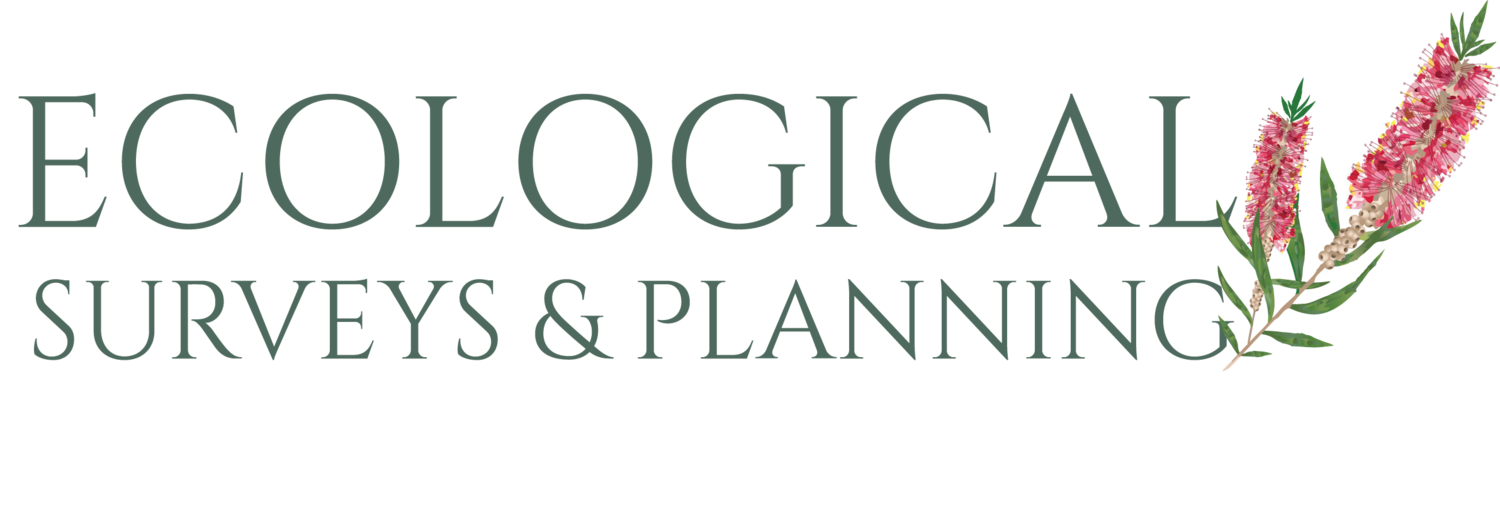Banner Image: Corymbia intermedia (Pink Bloodwood), Tewantin National Park, SE Qld
Ethics & Practices
Getting the Right Services
Ecology is a broad field with many specialisations. Whilst an expert in birds or insects might be very competent in their field(s), they may not have the required broader knowledge to undertake a general assessment and to prepare the report that you need. Councils and other consent authorities can and do reject reports if the consultant has not done the job correctly.
IMAGE: Helichrysum elatum
I engage specialist subcontractors in the rare circumstances that expertise beyond my own is required e.g. to investigate the potential presence of or impacts of a proposal on a particular threatened species of animal. Surveys for some animals require particular equipment, analytical skills, and uncommon knowledge in order to produce a credible assessment that would be regarded as competent by the assessing authority. I don’t pretend to know or do everything in the field of ecology, and if I can’t do a particular component of an assessment with confidence, I’ll find someone who can.
It pays to ensure that a consultant or consultancy firm has or can access people who have the right qualifications and experience for your job.
The Ecological Consultants Association of NSW provides some screening of applicants to gain admittance and to hold membership of different categories (student through to experienced practitioner). But the ECA is self-regulating and has no legal force. Even in the very rare situation when it expels a member for misconduct, this has no bearing on that person’s capacity to work in the industry. I was a founding member of the ECA but have not continued my membership because it is ineffectual in correcting some of the ethical and technical problems in the industry. It is beneficial but very limited in what it can achieve, especially now that BAM accreditation and associated regulatory processes are in place for most consultant ecologists.
Objectivity
Whilst the client pays for the consultant’s advice and report, the consultant ecologist is legally required to provide objective advice rather than advocacy for the client. Biased reporting is now grounds for disciplinary action against an accredited consultant.
If you require advocacy for your proposal, this is best obtained through a planning and development firm that will compile all aspects of your application and submit it to Council with arguments as to why it should be approved.
An ecologist may make favourable findings in relation to a proposal if the evidence supports this. In some situations, the granting of development consent can allow the Council to impose conditions that result in a net ecological benefit e.g. by removing pollutants, weeds, or remediating erosion when these issues might otherwise have gone unmanaged. Economically beneficial outcomes for a client can fund significant ecological improvements.
Conversely, an ecologist sometimes has to be the bearer of bad news to a client when it comes to ecological and associated legal constraints. Understandably, some clients seek to apply pressure on a consultant to amend their report. Very rarely, some try to avoid paying the consultancy fee because they don’t like the findings. Especially in the new regulatory environment, seeking to bias a consultant’s report through undue pressure and/or financial leverage could see the client reported to OEH for attempted corruption of a statutory assessment process. Furthermore, the consultancy industry tends to be fairly well networked such that information about a client that exerts undue influence, including threats of or outright non-payment, are distributed quite quickly, potentially making it difficult to obtain alternative consultancy advice.
If you receive ecological advice that is unpalatable, it is natural and perhaps prudent to consider shopping around for more favourable advice, However, a more favourable report could be rejected by the consent authority if it is seen to be biased or incompetent. Some authorities are very adept at detecting where a client has unduly influenced a consultant’s report, and they tend to reject such reports on that basis. Some are very aware of particular consultants and firms having a bias towards their clients’ interests, rather than being objective. Assessments provided by those consultants tend to be more thoroughly scrutinised because of their known bias. Councils and the OEH can make progressing your application very difficult in those circumstances.
It is useful to understand the critical difference between ecological advice and advocacy services, and to appreciate that an accredited ecologist is obliged to report as objectively as possible, even if the advice is against the client’s interest, and could lead to the client hiring a different consultant or not proceeding with a proposal from which the consultant might have gained a lot of work and a large fee.



